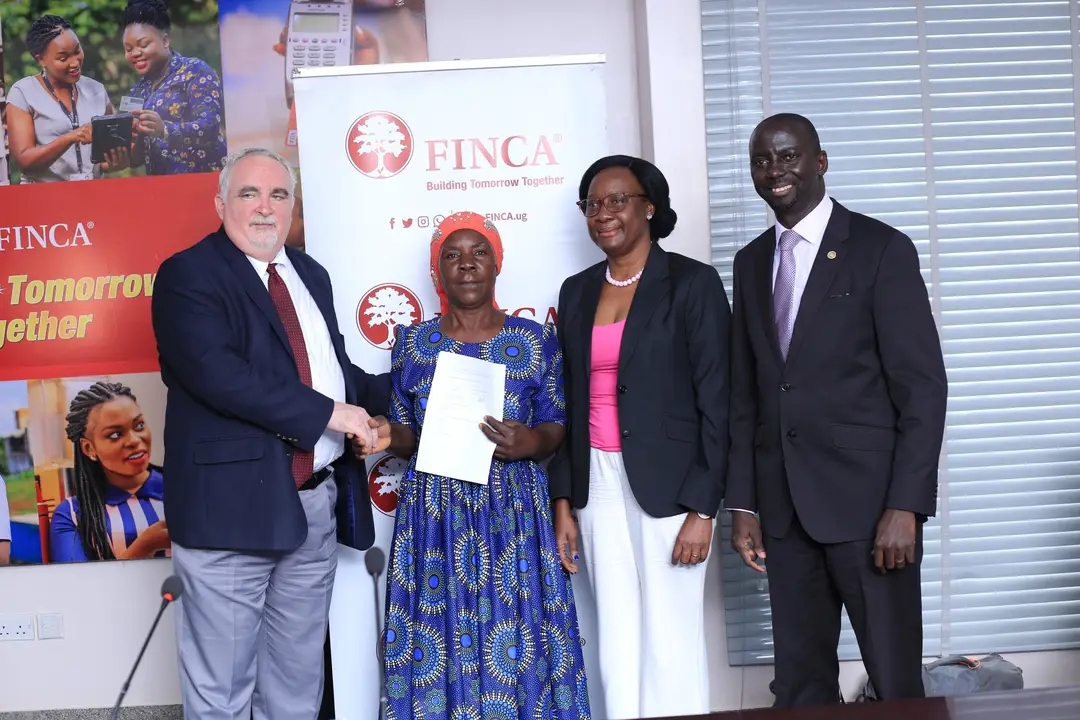
How FINCA’s Self-managed group loans are Empowering Women
As the world celebrates Women this entire Month of March, a vibrant transformation is unfolding across Uganda. Women, who continuously deal with daily struggles, are now witnessing a surge of economic empowerment, fueled by community-driven financial solutions from the unwavering support of several financial institutions.
FINCA Uganda is accelerating action through its different programs that transform and empower women across Uganda. Among these is the FINCA self-managed group loan product that provides training, mentorship, financial literacy, fostering social support network and access to financial resources, helping women to break the cycle of poverty and achieve economic independence. In Uganda where women often face significant barriers to economic empowerment, group loans have emerged as a powerful tool for promoting financial inclusion and independence.
For years, the rigid structures of traditional banking had acted as a barrier to women’s financial independence, pushing them towards rudimentary methods of saving such as under-the-bed stashes or savings boxes. FINCA Uganda’s self-managed group loan is a collective lending model, where members are not required to have collateral to access credit. This helps women access critical financial resources including savings which builds confidence in them, breaking down barriers, empowering and transforming women to reclaim control over their finances and build a future free from financial constraints.
According to Moses Ogwal the Acting Chief Commercial Officer, at FINCA Uganda, the self-managed groups are built on trust and peer accountability which is remarkably effective. Women are securing small loans that are dramatically improving their businesses.
Mariam Namuddu, a beneficiary from these loans, attributes her current success to the group named Kawempe KWA, where she joined at an early age, borrowing UGX 100,000 to add to her tomato selling business. This initial support laid the foundation for her growth, and today, she is among the long-serving and successful borrowers, all thanks to the financial lessons she learned early in her group.
The quiet revolution is echoing across Uganda, propelled by FINCA Uganda’s commitment to women’s economic empowerment. The recent unveiling of Janet Mudoola as FINCA Uganda’s brand ambassador underscores this dedication. Mudoola, herself a champion for women entrepreneurs, is leading a group of women entrepreneurs and amplifying the impact of these Self-managed group initiatives
“FINCA recognizes that empowering women is not merely a social good—it’s an economic necessity,” says Mudoola. She adds: “As women, we are not only the bearers of life but also the backbone of our communities. When we are equipped with the right tools and resources, we unlock our vast potential.”
Mudoola, along with five of her friends, initially started a group where each member would contribute UGX 2,000 per week, with the money being given to one person at the end of each week. This model attracted more members, and the group eventually grew to 30 participants. The group is still active to this day. Currently, Mudoola borrows approximately UGX 15,000,000, which she repays within a 6-month period. Together with her husband, they have established sugar cane plantations and built a comfortable home in Iganga. They have also become role models for poverty eradication in their community.
These women entrepreneur groups foster a sense of solidarity, and a space where women share knowledge, offer emotional support, and celebrate shared successes. They are learning to manage their finances, gaining confidence and empowering themselves, demonstrating the strength of women celebrated globally this month.
FINCA Uganda’s model directly addresses the unique challenges faced by women in underserved rural areas, including the lack of collateral, limited access to education, and cultural barriers that often impede their progress. By building trust-based relationships and offering accessible financial tools, these barriers are being dismantled, thus empowering women.
